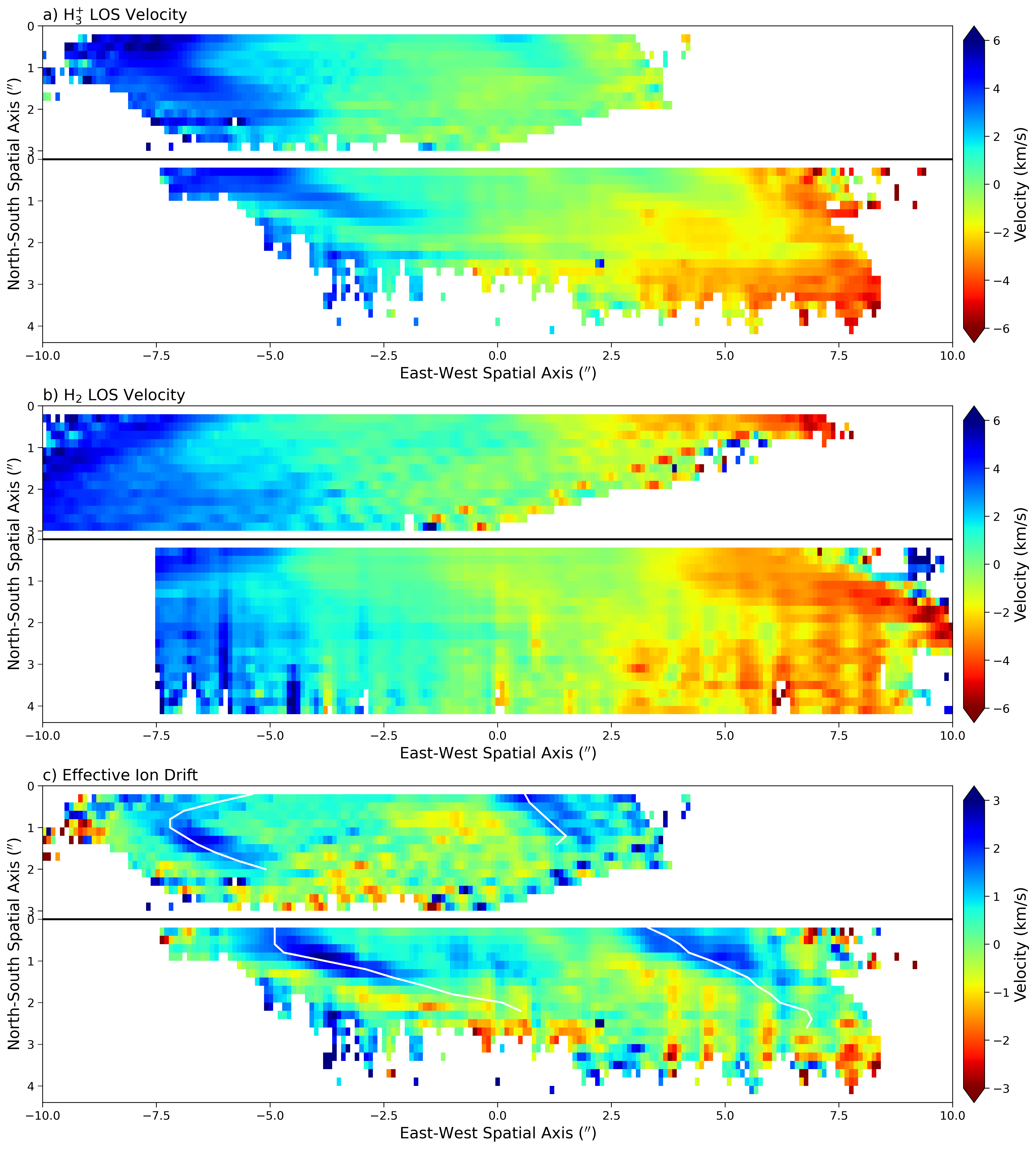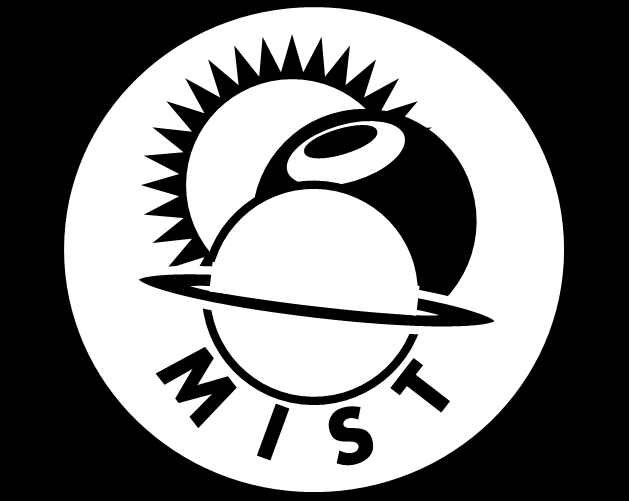MIST
Magnetosphere, Ionosphere and Solar-Terrestrial
Asymmetric Ionospheric Jets in Jupiter's Aurora
By Ruoyan Wang (University of Leicester)
We have simultaneously observed line-of-sight ionospheric and thermospheric winds in Jupiter using the Keck II telescope and produced one of the first global maps of both ion and neutral flows in the same layer of any atmosphere. Since ionospheric currents are through the relative motion of ions within the neutral atmosphere, comparing these two maps produces a global map of the "effective" ion drifts, the E x B flows that drive upper ionospheric currents. To the surprise of the Jupiter community, this upper atmospheric "effective" ion drift is dominated by two sunward blue-shifted jets associated with the dawn and dusk main auroral region, highly reminiscent of ionospheric flows seen on Earth. This discovery is directly opposite to the expected rotationally symmetric breakdown in corotation driven by the plasma-heavy magnetosphere. Our result suggests that the asymmetric currents close in the upper ionosphere, while the closure of breakdown-in-corotation currents occurs deep in the lower ionosphere, resulting in powerful upward auroral currents penetrating through overlying regions of downward currents associated with the asymmetric currents. Such a mechanism could potentially explain the complex switching generation of Jupiter's main auroral emissions observed by the Juno mission. Moreover, this study highlights the importance of the neutral atmosphere and interactions between ions and neutrals on other planets, including Earth, making Jupiter an important global comparator for future studies of these interactions.

See full paper for further details:
Wang, R., Stallard, T. S., Melin, H., Baines, K. H., Achilleos, N., Rymer, A. M., Ray, R. C., Nichols, J. D., Moore, L., O'Donoghue, J., Chowdhury, M. N., Thomas, E. M., Knowles, K. L., Tiranti, P. I., Miller, S. (2023). Asymmetric Ionospheric Jets in Jupiter's Aurora. Journal of Geophysical Research: Space Physics, 128, e2023JA031861. https://doi.org/10.1029/2023JA031861.
